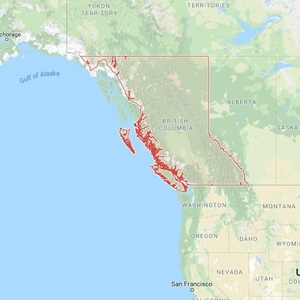British Columbia amends LCFS regulations, will require eligible biofuels to be produced in Canada

February 28, 2025
BY Erin Voegele
The government of British Columbia on Feb. 27 announced changes to the law governing its Low Carbon Fuels Standard that will require eligible renewable fuels to be produced in Canada. The changes also boost the renewable content requirements for diesel.
“British Columbians deserve a reliable, sustainable and Canadian fuel supply,” said Adrian Dix, Minister of Energy and Climate Solutions. “By increasing the Canadian biofuel content in our transportation fuels, we will support local producers, protect jobs and reduce our dependence on foreign energy. This action reflects our commitment to cleaner energy, economic growth and a resilient future for British Columbians.”
The regulatory changes boost the renewable fuel requirement for diesel from 4% to 8% beginning with the 2025 compliance period. Beginning April 1, 2025, the minimum 8% renewable fuel requirement for diesel must be met with eligible fuels produced in Canada.
Advertisement
Advertisement
Beginning Jan. 1, 2026, the minimum 5% renewable fuel requirement for gasoline must be met with eligible renewable fuels produced in Canada.
No changes have been made to the renewable fuel requirements for the 2024 compliance period. The government also confirmed that there have been no changes to the renewable fuel requirements for jet fuel.
Advertisement
Advertisement
Canada is currently the top destination for both U.S. ethanol and biodiesel exports. According to data published by the USDA, the U.S. exported 674.6 million gallons of ethanol to the country in 2024. That volume equates to 35.25% of total U.S. ethanol exports during the year. In terms of value, U.S. exports of ethanol to Canada accounted for $1.74 billion in 2024.
The U.S. also exported 515,956 metric tons of biodiesel and biodiesel blends of B30 and greater to Canada in 2024. That volume accounts for 88.15% of total U.S. biodiesel exports during the year. Biodiesel exports to Canada were valued at $743.77 million for the year. The USDA does not break down its export data by Canadian province.
Tidewater Renewables Ltd. is welcoming the LCFS program changes. "We are grateful for the support from the Government of British Columbia in levelling the playing field for Canadian renewable fuel producers and hope that, with these changes, we're now able to better compete with U.S. producers dumping their product into the British Columbia market. That said, the challenges facing the Canadian renewable fuels industry are substantial and it's going to take an all-hands approach to ensure our industry is able to continue to meet the growing demand for clean fuels", said Jeremy Baines, CEO of Tidewater Renewables. "As more renewable fuels produced in Canada become available, we expect the Government of British Columbia to raise the Canadian-produced renewable fuel requirements to an appropriate level to ensure a fair trade environment for renewable diesel and align policy with the broader goals of the Canadian biofuel sector.”
Additional information is available on the government of British Columbia website.
Related Stories
The U.S. EPA on July 8 hosted virtual public hearing to gather input on the agency’s recently released proposed rule to set 2026 and 2027 RFS RVOs. Members of the biofuel industry were among those to offer testimony during the event.
The USDA’s Risk Management Agency is implementing multiple changes to the Camelina pilot insurance program for the 2026 and succeeding crop years. The changes will expand coverage options and provide greater flexibility for producers.
President Trump on July 4 signed the “One Big Beautiful Bill Act.” The legislation extends and updates the 45Z credit and revives a tax credit benefiting small biodiesel producers but repeals several other bioenergy-related tax incentives.
CARB on June 27 announced amendments to the state’s LCFS regulations will take effect beginning on July 1. The amended regulations were approved by the agency in November 2024, but implementation was delayed due to regulatory clarity issues.
SAF Magazine and the Commercial Aviation Alternative Fuels Initiative announced the preliminary agenda for the North American SAF Conference and Expo, being held Sept. 22-24 at the Minneapolis Convention Center in Minneapolis, Minnesota.
Upcoming Events










